
Publisher:
Bonnie King
CONTACT:
Newsroom@Salem-news.com
Advertising:
Adsales@Salem-news.com

~Truth~
~Justice~
~Peace~
TJP
Nov-05-2011 16:06

 TweetFollow @OregonNews
TweetFollow @OregonNews
The Demons of War are Persistent
A.W. Schade Salem-News.comSome manage the demons’ onslaught successfully, others ignore the stealthy domination of their soul...
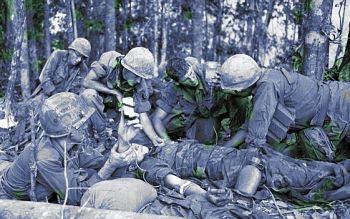 Treating the wounded in Vietnam. Courtesy: militarygear.com |
(POICVIANA, Fla.) - Salem-News.com is proud to carry the writings of Art W. Schade, a Marine Corps Veteran of the Vietnam War, who becomes the 14th writer to join our team that is either a current or former U.S. Marine. An author and researcher who writes from experience that few possess, Art is an extremely welcome addition to our growing force of writers with real, hardcore military experience under their belt.
Post Traumatic Stress Disorder (PTSD) affects millions of human beings worldwide and one group that holds a big stake in this game without choice is the American military combat veteran.
The treatments and programs to address PTSD are wide and varied; for some it comes down to medical treatment, but for others answers are different, and may come in the form of spiritual enrichment, therapy or group support. The problem is that too many people never connect with the answers and their lives end up cut short.
PTSD needs a thousand times the attention it receives, we are very pleased that Art has joined our team of writers.
- forward by Tim King
Others ignore the stealthy domination of their soul.
Many consider themselves cowards,
Should they concede to the demons’ hold?
Countless live in denial and loneliness,
Protecting a warriors pride.
Millions survive in destitution,
Finding solitude through social disconnection.
Most will intermingle with these emotional conflicts throughout their lifetime,
Attempting to fight the Demons’ on their own
As the most vulnerable—
too often—
Choose to “end” their lives:
Tormented by guilt and forever alone
Forty years have passed since my deployment as a combat Marine to Vietnam. Like many veterans of war, the “Demons” have haunted me through nightmares, altered personas, and hidden fears.
The purpose of this story is to help veterans of all eras recognize that there is no longer a need to fight the “Demons of War” alone. Civilian and VA health communities understand the psychological transformation that haunts veterans. It is no longer a dishonor, nor are you less of a warrior, should you seek medical assistance from within or outside the military. It has taken me more than two years to complete this personal message. It forced me to muster memories of my past—grudgingly—in an attempt to glance back through the cloak of shadows I weaved alone for so many years.
Please take a few moments to read this story, before your future becomes a reflection of my past, and those of countless veterans of every war. For over time the “Demons” may intensify in your mind, until they control your thoughts, and eventually imprison your soul.
Jackie Kennedy
A Personal Story
Friends and family gather to celebrate another joyful holiday. Nonetheless, I am melancholy, saddened by vivid memories of lost friendships and battlefield carnage that erratically seeps from a vulnerable partition of my mind. A cerebral hiding place I concocted decades ago to survive in society. Still, today I am frequently unsuccessful trying to forget the worst of war's atrocities. As well, I avoided searching for memories of my youthful years, since looking to the past means I must again pass through the warring years again.
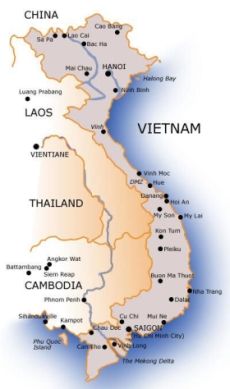
My pledge to God, Country, and Marine Corps was forty years ago, or more. At eighteen, like many others, I was engulfed in the ageless stench of death and carnage, in the mountains and jungles of Vietnam. As a young, unproven warrior, I consented to the ancient rules of war. My journey began as many others, in a bus ride to New York City’s legendary Induction Center at 39 White Hall Street. We went through lines of examinations and stood around for hours. We recognized one another's bare asses, before we had the chance to learn each other’s names. Nor did we know so many of us would remain together, building deep-seeded bonds of friendships. Training and fellowships began in boot camp at Parris Island, then to Camp Pendleton, Okinawa, and the Philippines - until we executed our new talents on the blood-soaked fields of Vietnam.
We argued and fought amongst ourselves as brothers often do. But never lost sight of the bonds we shared: We were United States Marines with an indisputable commitment to “always cover each other's back.” Crammed into the bottom of Navy Carrier Ships it seemed I vomited all the way to Okinawa. Nevertheless, aware we were going to Vietnam we partied hard in every port. As the first of our battles, began as slugfests in distant bar room brawls. In confidence, we spoke as brothers about our hardships, growing-up, family, girl friends, as well as our life’s plan. Moreover, we dreamed of going home again, as respected American warriors that defended democracy in a remote foreign land. We transferred to a converted WWII aircraft carrier that carried helicopters instead of jet planes. To traverse the coast of Vietnam and deploy by helicopter into combat zones from the Demilitarized Zone, the imaginary line separating North and South Vietnam, to the provinces and cities of Chu Lai and Da Nang. Then further South, to the outer fringes of Vietnam’s largest city, at that time named Saigon.
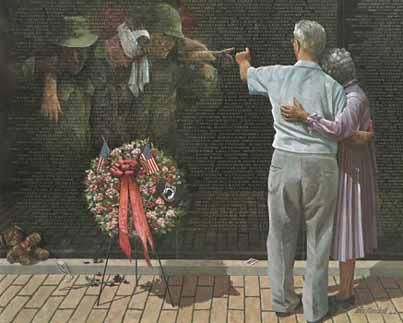
Within sight of land, we heard the roar of artillery and the familiar crackling of small arms fire. Sounds we were accustomed to, through months of preparing ourselves for battle. We would eventually load into helicopters, descending into confrontations ambivalent, yet assured we were young invincible warriors. We were assured the South Vietnamese needed us; as many of them did. Thus, our mission in enemy encounters was simple; save the innocent and banish the enemy to Hell!
The helicopters plunged from their soaring formation to hover a few feet off the ground. We nervously leapt—some fell—into the midst of an already heated battle. The enemy sprung a deadly assault upon us; at once triggering the loss of youthful innocence. I became engrossed in the shock, fear, and adrenaline rush of battle. It was surreal! It was also not the time to ponder the killing of another human being, recall the rationale behind the ethics of war, or become absorbed in the horror of men slaughtering one another. Thoughts of present demons certainly were not on my mind.
When the killing ceased and the enemy withdrew, I remained motionless, exhausted from the fighting. With only a moment to think about what had just occurred, shock, hate, and anger were buried under the gratitude of being alive. I had to find out which brothers did or did not survive, and as I turned to view the combat zone, I witnessed the reality of war: dreams, friendships, and future plans vanished. We knelt beside our brothers, some dead, many wounded and screaming in pain. A few lay there dying silently.
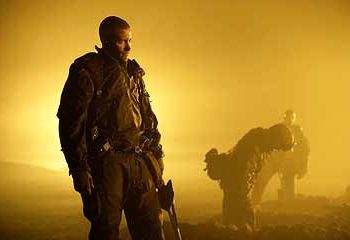
As I moved about the carnage, I noticed a lifeless body, face down, twisted abnormally in jungle debris. I pulled him gently from the tangled lair, unaware of the warrior I had found. Masked in blood and shattered bones, I was overwhelmed with disgust and primal obsession for revenge, as I realized the warrior was my mentor, hero and friend. I shouted at him as if he were alive: "Gunny, you can't be dead! You fought in WWII and Korea. Wake up! Wake up Marine! I need you to fight beside me!" Tears flowed down my face as I held him close and whispered that he would not be forgotten. I placed him gently in a body bag, slowly pulling the zipper closed over his face, engulfing him in darkness.
Navy Corpsmen—our extraordinary brothers—worked frantically to salvage traumatized bodies. We did our best to ease the pain of the wounded as they prayed to God Almighty. "With all my heart I love you, man," I told each friend I encountered. However, some never heard the words I said, unless they were listening from Haven. I was unaware of the survivor’s guilt brewing deep inside me. In two or three weeks our mission was completed, and we flew by helicopter from the jungle to the safety of the ship. None of us rested, instead remembering faces and staring at the empty bunks of the friends who were not there. I prayed for the sun to rise slowly, in order to delay the forthcoming ceremony for the dead.
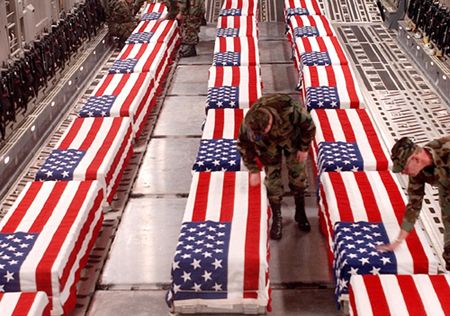
Early the next morning, we stood in a military formation on the aircraft carrier's deck. I temporarily suppressed my emotions as I stared upon the dead. Rows of military caskets, identical in design, with an American flag meticulously draped over the top, made it impossible to distinguish which crates encased my closest friends. As taps played, tears descended. For the first time I understood that in war, you never have a chance to say goodbye. I pledged speechlessly to each of my friends that they would never be forgotten: A solemn promise I regretfully only kept, through years of nightmares or hallucinations.
Combat is vicious; rest is brief; destroying the enemy was our mission. We fought our skillful foes in many battles until they or us were dead, wounded, or overwhelmed. Engaging enemy troops was horrific. Memories of guerrilla warfare in jungles and villages were equally, if not more, agonizing. We had to either accept or build psychological boundaries around the terror. Nonexistent were the lines of demarcation; we constantly struggled to identify which Vietnamese was friend and which was foe. The tormenting acknowledgement that a woman or child might be an enemy combatant that had to be confronted, was often overwhelming.
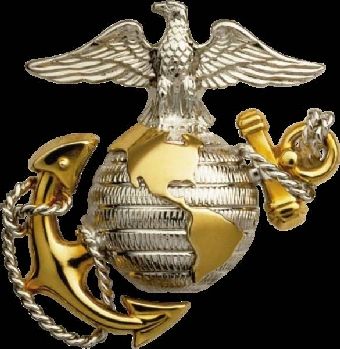
I was not aware of the change in my demeanor. In time, I realized that I had adjusted emotionally to contend with the atrocities and finality of war. I acquired stamina, could endure the stench of death, eliminate enemy combatants with little or no remorse, suppress memories of fallen companions, avoid forming new deep-rooted friendships, and struggled to accept the feasibility of a loving Lord. I never detected the nameless demons embedding themselves inside of me.
I packed minimal gear and left the jungle battlefields of Vietnam for America, never turning to bid farewell or ever again wanting to smell the pungent stench of death and fear. Within seventy-two hours, I was on the street I left fourteen months prior, a street untouched by war, poverty, genocide, hunger, and fear. I was home. I was alone. Aged well beyond my chronological age of nineteen, I was psychologically and emotionally confused. I had to transform from a slayer back into a (so-called) civilized man.
Except for family members and several high-school friends, returning home from Vietnam was demeaning for most of us. There were no bands or cheers of appreciation. Instead, we were shunned and ridiculed for fighting in a war that our government assured us was crucial and for an honorable cause. I soon found that family, friends, and co-workers could never truly understand the events that transformed me in fourteen months, from a teenage boy to a battle hardened man.
I was not able to engage in trivial conversations or take part in the adolescent games many of my friends still played. For them, life did not change and “struggle” was a job or the “unbearable” pressure of college they had to endure. It did not take me long to realize that they would never understand; there is no comparison between homework and carrying a dead man.
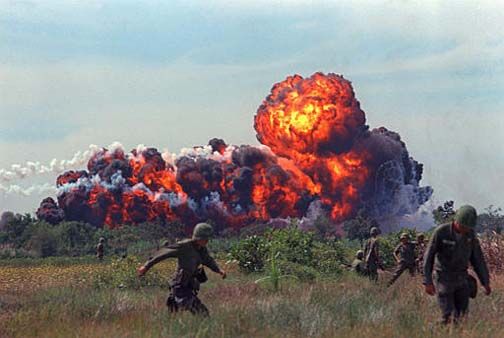
The media played their biased games by criticizing the military, and never illuminating the thousands of Vietnamese saved from mass execution, rape, torture, or other atrocities of a brutal Northern regime. They never showed the stories of American “heroes” who gave their lives, bodies, and minds to save innocent people caught in the clutches of a controversial war. For years, my transition back to society was uncertain. I struggled against unknown Demons and perplexing social fears. I abandoned searching for surviving comrades or engaging in conversations of Vietnam.
Moreover, I fought alone to manage recurring nightmares. I locked it all away in a chamber labeled, "Do not open, horrors, chaos and lost friends from Vietnam." However, suppressing dark memories is almost impossible. Random sounds, smells, or even words unleash nightmares, depression, anxiety and the seepage of bitterness I alluded to before. I still fight to keep these emotions locked away inside me.
Today, my youth has long since passed and middle age is drifting progressively behind me. Still, unwelcome metaphors and echoes of lost souls seep through the decomposing barriers fabricated in my mind. Vivid memories of old friends, death, guilt, and anger sporadically persevere. There may be no end, resolution, or limitations to the demon voices that began as whispers, and have since intensified over decades in my mind. "Help me buddy!" I still hear them scream. As nightmares, jolt me from my slumber. I wake and shout, "I'm here! I'm here my friend," and envision their ghostly, blood-soaked bodies.
Even today, I wonder if more Marines would be alive if I had fought more fiercely. "I had to kill!" I tell myself. Visions of lost friends and foes hauntingly reappear at inappropriate times. Guilt consumes my consciousness as I wonder why I did the things I did as well as the question: Why did they not survive? More dreadful, however, is the conflicting torment I feel when I acknowledge that I am thankful it was others instead of me.
This story has one purpose: to extend a helping hand. Regardless of the war you fought, your memories are similar to mine, and mine to yours. I never recognized how suddenly the demons were maturing. Disguised and deep-rooted, I assumed anxiety, loneliness, depression, alcohol abuse, nightmares, and suicidal thoughts were traits that haunted every man. To all past and current warriors, I rise and applaud your valiant stand. Nonetheless, controlling war's demons takes time; and the battle is much harder if you challenge them alone.
Do not wait to seek medical assistance, as older veterans were forced to do. Far too many warriors were less fortunate than me, and even you. PTSD is real my friends, and easily recognizable. Yet, if not confronted early, can ruin relationships with your spouse, children, family members, and career.
Remember, you will always be warriors and heroes to us all. Nevertheless, many will be overpowered by the demons and lose ownership of their soul! It is up to you to win this battle, as I know many of you will. This takes time, family, friends, VA, outside professionals, and/or peer groups. These groups will be the ones that “have your back!”
Semper Fi!
AW Schade; a Marine, Vietnam 1966/67, retired corporate executive and author of the award winning book, “Looking for God within the Kingdom of Religious Confusion” “ A captivating, comparative, and enlightening tale that seeks to comprehend the doctrines and discord between and within Judaism, Christianity, Islam, and Secularism. What the seeker discovers, transforms his life forever!”
www.awschade.com [Video and Reviews]
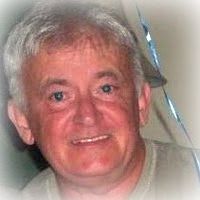 Art W. Schade's life has been spent as a Marine, Vietnam Veteran, Bank Manager, and over 30 successful years in corporate executive marketing, business development, and sales. Author; married and father of three young men, Schade graduated from Syracuse University with a degree in Business Management.
Art W. Schade's life has been spent as a Marine, Vietnam Veteran, Bank Manager, and over 30 successful years in corporate executive marketing, business development, and sales. Author; married and father of three young men, Schade graduated from Syracuse University with a degree in Business Management.
The religious contradictions within Art's family were similar to those seen everywhere in the U.S. "As I matured from a God fearing child to a bewildered adult, I paid little attention to my families’ lack of consistency between what they told me to do, and what I observed them and others doing. More difficult was my inability to reconcile the contradictions, possessiveness and inconsistency of my Catholic upbringing. As an 18-year old Marine in Vietnam I struggled to understand why a loving God allowed the carnage, and emotional trauma of war. Often, wondering whose side He was really on. However, battles are not a place to search for God, they are horrendous conditions where you need to believe God is on your side."
Art's perspective and his life experiences lend themselves well to his role as a writer today, and he is a welcome addition to Salem-News.com.
Articles for November 4, 2011 | Articles for November 5, 2011 | Articles for November 6, 2011
Quick Links
DINING
Willamette UniversityGoudy Commons Cafe
Dine on the Queen
Willamette Queen Sternwheeler
MUST SEE SALEM
Oregon Capitol ToursCapitol History Gateway
Willamette River Ride
Willamette Queen Sternwheeler
Historic Home Tours:
Deepwood Museum
The Bush House
Gaiety Hollow Garden
AUCTIONS - APPRAISALS
Auction Masters & AppraisalsCONSTRUCTION SERVICES
Roofing and ContractingSheridan, Ore.
ONLINE SHOPPING
Special Occasion DressesAdvertise with Salem-News
Contact:AdSales@Salem-News.com

googlec507860f6901db00.html



Terms of Service | Privacy Policy




All comments and messages are approved by people and self promotional links or unacceptable comments are denied.
COLLI November 14, 2011 11:18 am (Pacific time)
Art: I am late reading this article and I regret that fact but I will say what I feel now. Those who fought in Viet Nam or fight in any other war do not have to stand-down to anyone. No two individuals walk away from the same experience carrying the same burden. Anyone who slights you effort then or efforts now is ignorant of the facts other than what they read in a book somewhere. God bless you Art. You and every other Service man or woman who ever donned the uniform ARE heroes. Not because any of the wars we fought in were righteous but because you believed they were and did your best . . . nothing else really matters except to ass-aches! Your tolerance is as amazing as your courage. Thank you for your service Sir.
AW Schade November 11, 2011 6:12 pm (Pacific time)
Editor: Final comment, this communication with a person who refuses to identify themselves is ridiculous. I'm very glad 30 years of reunion conversations of 800 people represents our post-combat vets. I thank you again for printing my story, and I hope it helps ONE Vet seek help! Thank you for acting so promptly to correct the human error in the first introduction ... I look forward to sending you others writings. Semper Fi!
Editor: Art, we always have our critics, I am just glad that you have joined our team. Semper fi back to you or as the guys say in Iraq today, 'Semper Gumby'.
Anonymous November 8, 2011 9:55 am (Pacific time)
Editor what is clearly evident is that there is considerable erroneous information out there about Vietnam veterans, and all vets who have PTSD. Millions served in Vietnam, and 2/3's of those who went there were volunteers (plug in "Myths about Vietnam" into google), while the "Greatest Generation" during WWII was just the opposite. The formal scientific data on suicide by Vietnam vets was initially high, then dropped very quickly after a couple years upon returning, then actually went below the rate below those who never served. My position on Agent Orange disability is like most of us who served there, get the benefits out to the vets. That includes the Bluewater sailors, but what is of paramount importance is to see that available facts are put out correctly, not the innuendo based on nothing more than uninformed opinions. There are many vets currently drawing PTSD compensation from the VA, and many of these vets work in a wide variety of jobs, including law enforcement. Unfortunately there are people in organizations like the Brady group, and other gungrabbers who use these bogus suicide stats and are trying to pass legislation that would in effect take away these vets right to exercise their 2nd Amendment, including having CHL's. Please note there is no evidence that actual combat vets with PTSD are committing gun crimes at even close to the rate of non-vets, so please appreciate the need to keep facts about these vets accurate. Also when you look at a national database about this situation you get the big picture, there will always be exceptions on a micro-level, but that slants opinions incorrectly. Again plug in "Myths about Vietnam" and see info probably much different that you have been wired with. Everyone has opinions, but that may not be reflective of actual national-level facts, ergo, the stereotypes are promulgated by incomplete info, and/or those with malevolent agendas against veterans.
Anonymous November 7, 2011 6:36 pm (Pacific time)
Editor I posted scientific data that was presented to congress that was peer reviewed. This also included a link to the Centers for Disease Control in Atlanta. I have been on top of this suicide situation on Vietnam veterans since the late 60's. For over 30 years my former infantry unit (battalion, over 800 men during my tour) from Vietnam has been holding yearly reunions, and we all share info. Suicide has been a very rare event in these years since the reunions began, so the links I provided also reflect my experience. At one time, it was a stereotype (still being done) that the majority of Vietnam vets were into drugs, and we had a higher than average incarceration rate than our civilian cohorts, well it's just the opposite. Considering that the people who claim these high suicide rates cannot provide any real evidence, then the links I provided are essentially primary. I was combat infantry, and collectively we simply do not have high suicide rates that many claim. Where's the evidence? Also try to imagine infantry troopers/Marines/soldiers who want to return to the world that would allow any of our fellow infantry brothers to be high in the field. Hollywood made a lot of movies that were pretty bogus. There unfortunately are some Vietnam vets who make unfounded claims, for if they were ever out doing actual combat operations they knew it had to be an extremely rare event if peer pressure was not correcting bad behavior. Plus there would have to be a complete breakdown in leadership by officers and NCO's, and I assure you, we all wanted to get back to our families.
Editor: Well you have a history of disagreeing with almost every point we ever make here; looking at your past comments I detect a fixation on an 'us and them' type of approach; you don't respect people who spend time covering war, you don't respect Blue Water sailors, you have accused just about every member of this team who served in war of having basically been a REMF and several absolutely are not. In the last day you have posted material that wrongly describes the intentions of the Occupy Wall Street movement. To me that reduces the credibility of the point you make above; you perhaps have an experience that is different from others, who knows. My friend Paul Hanson was the first person in the world to produce a documentary about PTSD, he and I both worked at KATU in Portland, Oregon, though several years apart. Anyway, his documentary aired in 1983 and one of the very guys he is following took his life before the program was over. So for those who have not been forced to deal with suicide, fantastic, I'm glad to hear that. I'm glad to know that a force that was largely drafted and forced to serve in the largest U.S. military service,, the army, are such an outstanding and together bunch and that they have never been in trouble, or apparently had any trouble of any kind at all. Funny, I just wrote about Cele Castillo last night, his reward for serving his country in Vietnam was to be scapegoated by the Bush Administration who finally got their payback for his blowing the whistle on Iran-Contra.
AW Schade November 7, 2011 4:13 pm (Pacific time)
Don't know why you'd want to stay anonymous, the intro numbers are incorrect and I'll ask to have them corrected. That number sounds more like the total killed in Vietnam? And what makes you believe it's about all veterans, when the beginning of the story clearly highlights it's my personal story. I believe a simple comment that the number of suicides are incorrect would have sufficed. My annoyance with your comment is 1 suicide is too much! Forget the 1.7, which I'm thankful I'm not part of. Who is looking for false evidence when 58K American's are killed, and twice as many wounded. I would have to assume you were in Canada during Vietnam? The story is intended to help veterans seek help from killing, trauma and not statistical analysis. Did you get anything from the story, besides the error someone made in the intro?
Editor: As Art mentions, the information at the front of the article referencing suicide numbers has been removed.
Anonymous November 7, 2011 10:22 am (Pacific time)
EVIDENCE v.s. PROPAGANDA
"The CDC Vietnam Experience Study Mortality Assessment showed that during the first 5 years after discharge, deaths from suicide were 1.7 times more likely among Vietnam veterans than non-Vietnam veterans. After that initial post-service period, Vietnam veterans were no more likely to die from suicide than non-Vietnam veterans. In fact, after the 5-year post-service period, the rate of suicides is less in the Vietnam veterans' group. "[Houk] Testimony by Dr. Houk, Oversight on Post-Traumatic Stress Disorder, page 17, Hearing before the Committee on Veterans' Affairs United States Senate one hundredth Congress second session. Also "Estimating the Number of Suicides Among Vietnam Veterans" (Am J Psychiatry 147, 6 June 1990 pages 772-776)" [AND]"The same is true for the nonsense that Vietnam vets have high rates of suicide, often heard as the "fact" that more veterans had died by their own hand than in combat. But that's a myth, too. A study by the Centers for Disease Control found Vietnam veterans had suicide rates well within the 1.7 percent norm of the general population." http://www.vvof.org/factsvnv.htm [And] This link offers an explanation behind much of the false data out there. Primary source info from a reliable scientifically based organizations that has been replicated by peer review offers the best reliable info. http://www.jameswebb.com/articles/wapo-vietnamvets.html
Editor: Look, nobody is trying to rub you the wrong way, the war was just very hard on people and your experience doesn't necessarily reflect that of others.
[Return to Top]©2025 Salem-News.com. All opinions expressed in this article are those of the author and do not necessarily reflect those of Salem-News.com.